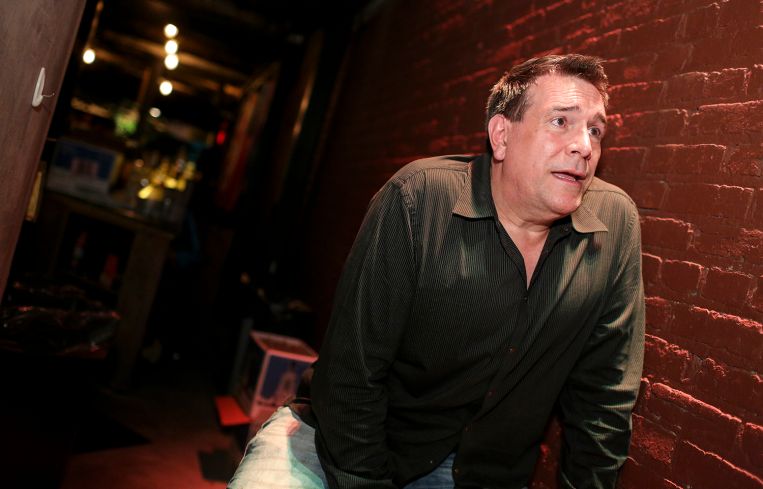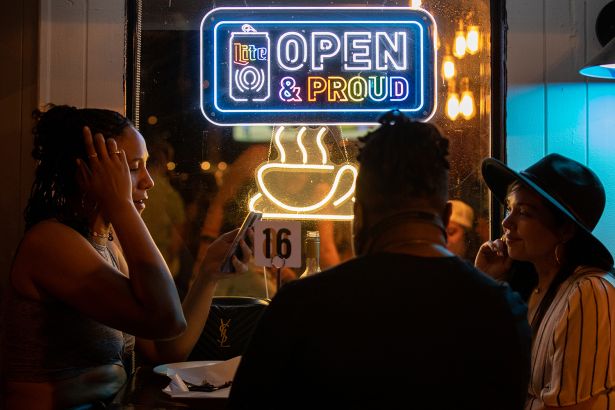D.C.’s LGBTQ+ Bars Struggle With Pricey, Aging Real Estate
Rent and repairs are piling up for Washington’s relatively few remaining establishments
By Jacob Gardenswartz June 11, 2024 8:24 am
reprints
Next year, Washington, D.C., is set to host World Pride 2025, an international celebration of the LGBTQ+ community commemorating the 50th anniversary of pride festivities in the nation’s capital.
The District of Columbia has the largest percentage of LGBTQ+ adults per capita of any U.S. state plus D.C., according to research from UCLA’s Williams Institute, and its fair share of gay bars to boot. But with the vast majority of such businesses concentrated in the “gayborhoods” of Northwest D.C., some in the LGBTQ+ community are reeling from a string of recent real estate-related setbacks impacting prominent queer establishments elsewhere in the District.
In April, the trio of nightlife veterans behind the much-awaited Town 2.0 nightclub, formerly Town Danceboutique, filed suit in D.C. Superior Court against their landlord, claiming the owner had failed to abide by the terms of their lease and engaged in negligent misrepresentation about the condition of the space.
Barely two weeks later, meanwhile, Capitol Hill’s As You Are bar — one of just two D.C. establishments catering primarily to lesbians — was indefinitely closed due to water damage that compromised the structural integrity of the foundation walls. Bar owners Rach “Coach” Pike and Jo McDaniel told the Commercial Observer they’ve received minimal communication from the building owner about what steps were being taken to mitigate the issue and when they might reopen.
“It’s been made very clear to us that we are not decision-makers, and [we] are just waiting for them to give us more information,” McDaniel said.
Such problems are not unique to queer businesses. Indeed, D.C. is home to two of the 10 most expensive real estate submarkets in the nation and some of the country’s oldest buildings.
In contrast to traditional bars and restaurants, queer establishments often serve an added community purpose, however: Proprietors’ goals are not merely to run successful businesses, but also to cultivate safe spaces for some of the city’s more vulnerable inhabitants. That mission can at times come into conflict with property owners’ goals of maximizing the bottom line.
“We exist because we wanted to create a safe space,” Pike said. “Jo and I would have never opened a space just to pour booze and coffee. It was to create a community space for, you know, our people.”
Business partners and D.C. nightlife veterans Ed Bailey, Jim “Chachi” Boyle and John Guggenmos are no strangers to Washington real estate drama.
The trio launched the original Town Danceboutique in a dilapidated space on the 2000 block of Eighth Street Northwest in late 2007, helping it to become what was then the largest gay-owned club in D.C. until its surprise closure in 2018. Though the trio had leased the space from a slew of different owners over the 11 years it was in business, their final landlord opted to convert the building into luxury residential units, making Town a casualty of the sort of gentrification that restaurants and bars like it helped to engender.
Many in the LGBTQ+ community rejoiced when news broke a year later that the group had found a different, seemingly unkempt space in Northeast D.C. to redevelop for the bar’s relaunch. In September of 2019, the group, now operating under the name Town2.0 LLC, entered into a lease for 1001 North Capitol Street NE with Jemal’s Sanctuary LLC, a subsidiary of Douglas Development, one of D.C.’s biggest developers.
Built in 1891, the 16,218-square-foot, red-brick building featured on the D.C. Inventory of Historic Sites had housed St. Phillips Baptist Church since the late 1940s (the congregation later relocated to Temple Hills, Md.) and was purchased by Douglas in 2017. According to a legal complaint obtained by CO, Town 2.0’s lease stipulated that the landlord would complete some “critical life safety structural work” on the building before the lessees took possession of the space, including strengthening the load level, replacing the roof, repointing the brick and shoring up the foundation and walls, among other items.
Though the lease had listed Sept. 1, 2020, as the anticipated completion date for such improvements, the nightclub developers contend that Jemal’s Sanctuary “has not performed and is unable or unwilling to perform” such actions. They’re now seeking the immediate termination of the lease as well as damages totaling at least $450,000 — $137,500 worth of rent and security deposit payments and the rest in damages.
Representatives for Town 2.0 or Douglas Development did not respond to inquiries about the dispute, while a representative for Jamal’s declined to comment on the matter, telling CO only that he’d let their legal filings speak for themselves.
In a formal response to Town 2.0’s complaint filed on May 21, Jemal’s declined to specifically rebut any of the lawsuit’s claims, alleging only that the majority of the lawsuit’s allegations are “denied” and demanding “strict proof” of their accuracy. And, in early June, the landlord filed a counterclaim against Town 2.0 for breach of lease, suggesting the bar owners failed to perform their own “leasehold improvements” to the space that were required in their contract.
A teleconference to discuss next steps in the case is scheduled for July 12, according to court records.

Located just two miles south in Capitol Hill’s Barracks Row neighborhood, As You Are faced its own challenging start when it opened in March of 2022. McDaniel and Pike — who’d previously held management roles at Adams Morgan’s A League of Her Own bar and were featured in a documentary about the disappearance of lesbian bars across the U.S. — faced vociferous pushback to their liquor license application from some local residents.
“It took quite a bit of emotionally heavy work to convince the neighborhood that we weren’t going to have, and I quote, ‘our love affairs in their front yard,’ ” McDaniel recalled.
After an organizing campaign, As You Are received its license to operate and soon shot to national prominence, earning a spot on Esquire’s list of the best gay bars in America barely a year after opening.
Maintaining financial well-being has always been a struggle, though. Along with many others like it, the business fell on especially hard times in late 2023, owing in part to what owners described as a COVID-era lease agreement valuing the property as significantly more costly than others around it.
Discussions with the landlord to renegotiate rent went nowhere — “He was not interested in pursuing that conversation,” McDaniel said — so she and Pike again turned to their LGBTQ+ community through a GoFundMe, in just three days meeting their goal of raising $150,000 (the total soon well exceeded that).
Representatives for White Star Investments, which owns the property at 500 Eighth Street SE, did not respond to an inquiry about such conversations.
Now with the surprise structural damage to the property forcing its indefinite closure, the two worry about the long-term stability of their business — and what it provides for LGBTQ+ Washingtonians.
“There is some perception that we don’t need these spaces anymore because we’ve progressed and you can be queer anywhere, especially in the District,” Pike said. “And, the fact of the matter is, that’s not true.”
As You Are exists not just as a business but as a community lifeline, they argued, one needed now more than ever.
“Inside these four walls, we’ve empowered our community to speak up and speak out with us,” Pike added. “That’s our focus.”



